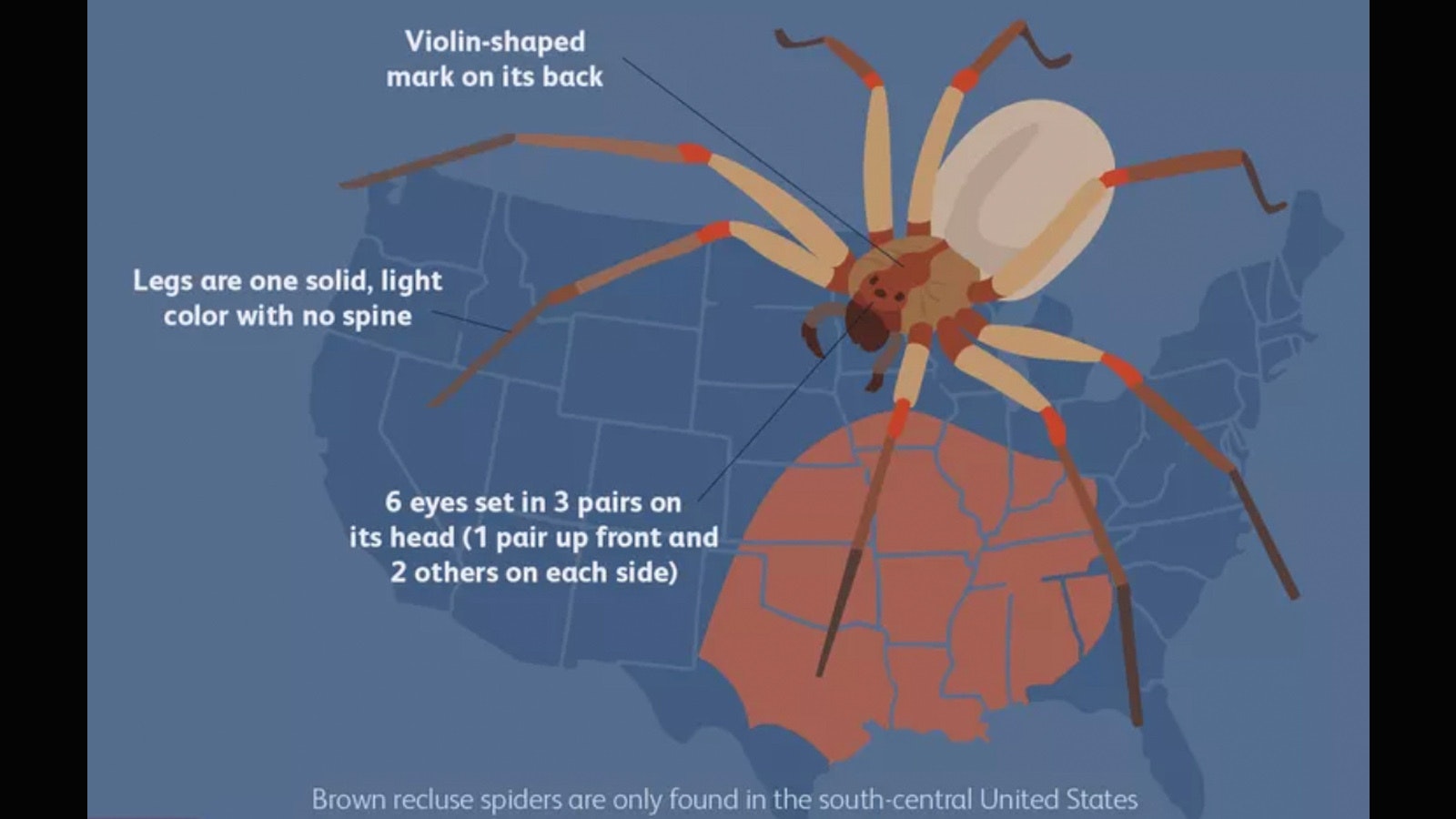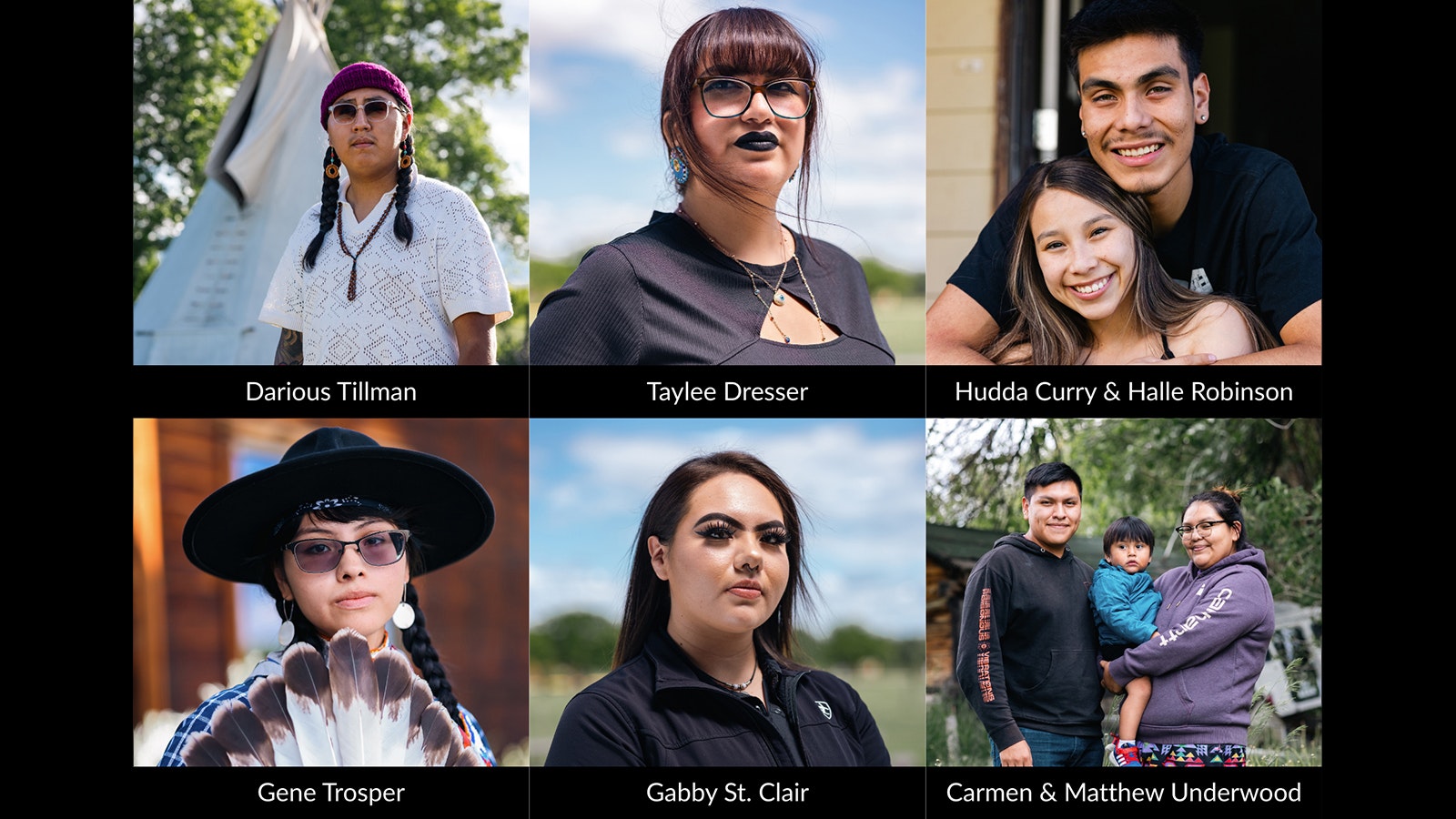Facebook comments flew fast and furious after Cowboy State Daily reported Tuesday that a prominent entomologist insisted that brown recluse spiders are rare in Wyoming, and that reported bites are often misdiagnosed.
University of Wyoming entomologist Scott Schell said that in his 20 years in the field, he has only seen evidence of three brown recluse spiders in the Cowboy State, and all of them had hitched a ride here from their native habitat, which is in the southeast part of the U.S.
But, many readers don't believe him and offered their own anecdotal evidence as proof that the “rare” arachnid is much more prevalent in Wyoming than what he says.
Schell admits that his experience with brown recluse spiders in the state is purely based on the specimens that have been reported or sent to him. But he said he’s consulted with colleagues in neighboring states who have reported similar data.
“My colleagues at Utah State and Colorado State universities have also only rarely had brown recluse spiders submitted,” Schell told Cowboy State Daily, but added, “rare does not mean none.”
Not An Island
Schell is hardly an island. University studies all across the nation concur that the range of the brown recluse spider is in the southeast part of the United States and nowhere close to Wyoming.
Penn State University published a study concluding that brown recluse spiders are established in 16 states: Alabama, Arkansas, Georgia, Illinois, Indiana, Iowa, Kansas, Kentucky, Louisiana, Mississippi, Missouri, Nebraska, Ohio, Oklahoma, Tennessee and Texas.
It acknowledged, as Schell did, that isolated occurrences of the spider have been documented in Wyoming as well as a number of other states.
The University of Kentucky reported the same thing.
"Occasionally, one or a few spiders may be transported to a non-native area in boxes or furnishings, but infestations seldom become established," the UK report says.
Then there's the exhaustive report from the Kansas Academy of Science. Conclusions are the same. There are rare instances of the spider outside of the southeast but no established populations.

Sheridan County Creepy-Crawlies
Many Cowboy State Daily readers, however, don't appear to buy it.
One Facebook comment reads, “I used to do HVAC work in the Sheridan area. I once had to run a thermostat wire from one side of a room to the other in a crawl space. I popped open the crawl space access door and shined a light across the dirt floor of the crawl space. There were dozens of them in that crawl space, and having grown up in the South, I know exactly what a brown recluse looks like.”
In response, Schell noted that he has never had brown recluse spiders submitted for identification from Sheridan County, although many other species have been sent to him from that region.
“Hopefully, all the spiders (he) saw stayed there in that crawl space and then died out,” Schell said.
Severe Reactions
Another Facebook comment reads, “My dad had a friend laid up in the hospital, upper torso flayed wide open for weeks, in a medically induced coma due to a brown recluse bite. I had seen the pictures from his daughter. He almost died. Here in Wyoming.”
Schell said that such a serious reaction to a brown recluse bite is very rare, even in the part of the United States where the spiders are common.
“I am glad he was able to recover,” he said.
Another commenter described almost losing a finger to a spider bite that was identified by the University of Wyoming as a brown recluse; yet another claimed to know of two people in Cheyenne who had been bitten by a brown recluse, and both were admitted to the hospital for treatment.
Schell said it is possible that these incidents were not passed on to him because of HIPPA regulations and patient confidentiality — but pointed out that in his 20 years with the University of Wyoming, in which he has been the person responsible for insect and spider identifications, he has not had any brown recluse spiders submitted from Cheyenne or Laramie County by public or medical professionals.
“I was contacted by an emergency room physician a few years ago about a patient with a black widow spider bite,” he said. “Black widows are very common in Wyoming if you know where to look for them. The physician said it was only the second spider bite he had treated during his employment at the hospital.”
Misdiagnoses Common
Schell said he understands that people are confident in what they have personally seen and experienced, and what they have been told by professionals. But he counters that misdiagnosis of spider bites is a concern in the medical community.
“I won’t argue about what people say they have seen,” said Schell. “Misdiagnosis is a major issue, but that is for the medical doctors to write about in their medical journals.”
In fact, the Journal of the American Medical Association (JAMA) published a paper in 2017 by Dr. William Stoecker about the myriad ways that a misdiagnosis of brown recluse bites can decrease the accuracy of medical professionals in determining the cause of certain wounds.
“About 40 medical conditions have been or could be misdiagnosed as recluse bites,” reads the opinion, including infections caused by staphylococcus aureus (staph infections) and the herpes zoster virus.
“Anyone that has a wound that doesn't want to heal, it should be investigated,” said Schell, “because anything that breaks the skin and then (results in) a necrotic lesion should be cultured to determine whether or not it is an antibiotic resistant bacteria before it gets too bad.”
What To Do If You Suspect A Brown Recluse
Schell said he fields spider questions frequently, “because people usually hate them all,” he said. He admits that — outside the lab — he himself avoids arachnids.
“I prefer not to have any six- or eight-legged roommates in my house,” said Schell. “I work hard to exclude them and eliminate any possible food source for insects or their predators, the spiders, to find.”
But should anyone in Wyoming suspect that they’ve got a brown recluse living nearby, he would love to examine it.
“If you find some brown recluses at your place and you can safely collect them, I will pay for the shipping cost,” he said. “Or if you can take clear close-up photos I would like to see them so I can add it to the species’ database.”





